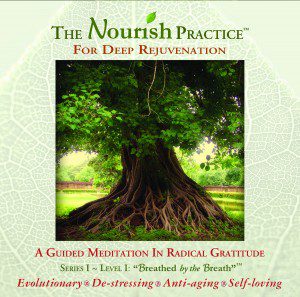 By Jack Adam Weber L.Ac., Dipl. C.H.
By Jack Adam Weber L.Ac., Dipl. C.H.
Contributing Writer for Wake Up World
Selfishness is a natural response to wanting to be happy. But if conditional happiness is all we know, then we might end up with too much selfishness at the expense of something more than happiness. Enduring selfishness that does not make room for anything else inside us, but remains attached only to trying to fill a void is one of those tricks of the mind.
It seems like what we want is that thing to make us complete, but it’s like trying to pursue sleep. The more we do, the less we receive it. For basic essentials, yes, food and some extra money, and access to resources to make our lives better are all worth pursuing and do make us happier. I have always said, “Money won’t make you happy, but it can make you happier.” But, beyond a modicum of need fulfillment, the more we try, the further away we get from happiness. Probably because happiness only goes so deep.
[pro_ad_display_adzone id=”110028″]
Beneath our hankering for happiness is our desire for fulfillment, and fulfillment is all about meaning, purpose, and giving the best of ourselves. Yet, if we don’t recognize the trap that enduring selfishness can only make us happy to a certain point, then we may never know anything more than fleeting pleasures. We want to cultivate the best of our most unique selves so we can give it away! This way, we not only help others but feel even better ourselves.
Selfishness is a response to trying to fill what we feel we lack. But not all lack can be fulfilled by taking, by getting. We have to be able to deeply receive in order to feel fulfilled. We cannot deeply receive when we are blocked from doing so. And we cannot give as much when we don’t feel fulfilled. So, we have to have to clear what blocks us from receiving in order to feel fulfilled. What’s more, giving is its own reward, which augments our sense of fulfillment when we are finally able to give from a place of fullness.
The quest for fulfillment also brings us to the issue of clearing stagnation from our body — stagnant physical, emotional, and creative energy. Doing so clears the body-mind space so we can deeply receive, so we can experience fulfillment. In fact, we find that in the very act of clearing stagnation and pain we are filled by what we were looking for in taking: the invisible inner resources of love, self-respect, and self-care. We also gain what I call the finer jewels of being human: courage, compassion, empathy, creativity, meaning, and purpose, all of which allow us to give more. This dynamic, incidentally, is the foundation of The Nourish Practice, a relaxing inner practice of receiving for self-fulfillment and stress release.
 Feeling fulfilled from these inner resources, our finer jewels of being human, allows us to be genuinely selfless, in large part because we have filled our own cup, are able to receive love, and now can give it because we don’t walk around with as much of a sense of lack. Indeed, those who are unilaterally selfish likely feel that they are unable to give, and they indeed likely are in many ways. But the problem of feeling empty lies not so much in an inability to get, but to deeply receive. If that depth in ourselves is not cleared, then it’s tough to receive and feel deeply, to feel fulfilled. By similar token, those who give what eventually feels like too much often suffer from the same sense of lack.
Feeling fulfilled from these inner resources, our finer jewels of being human, allows us to be genuinely selfless, in large part because we have filled our own cup, are able to receive love, and now can give it because we don’t walk around with as much of a sense of lack. Indeed, those who are unilaterally selfish likely feel that they are unable to give, and they indeed likely are in many ways. But the problem of feeling empty lies not so much in an inability to get, but to deeply receive. If that depth in ourselves is not cleared, then it’s tough to receive and feel deeply, to feel fulfilled. By similar token, those who give what eventually feels like too much often suffer from the same sense of lack.
So, selfishness is merely the attempt to heal, no matter how distorted it looks, such as with avarice and violent taking and deceptions. But if our selfishness takes the form of only taking, then it’s a limited selfishness that can get in the way of healing, which is what we see in those possessed by greed. If it takes the form of focusing on ourselves and being “selfish” with our time and energy to do our inner work — clearing so we can receive — then it’s a wholeness-promising selfishness and eventually good for the planet too.
In the end, selfishness is not negative, not inherently bad. It’s simply a means to feel like we matter, that we are worthy of love, and getting our basic needs met. If it helps us find substantial, enduring, unconditional, sustainable love — as opposed to fleeting substitute pleasures — then our selfishness eventually falls away when we are more able to give. The way we go about our selfishness — our focus on ourselves — determines whether we end up with superficial or deep love for ourselves. If we do the deep work of self-work and surrendering to receive, which requires some degree of appropriate selfishness and letting our penchant for grabbing, this can ultimately be the path for the most genuine and abundant selflessness.
 Our glass always stands to be full — half, or less, with what we materially need and can receive, and half, or more, with a vibrant emptiness that wants to give. Giving and receiving — as material and immaterial worth, half visible and half invisible, half full and half empty — equals a full glass, even if it looks half full!
Our glass always stands to be full — half, or less, with what we materially need and can receive, and half, or more, with a vibrant emptiness that wants to give. Giving and receiving — as material and immaterial worth, half visible and half invisible, half full and half empty — equals a full glass, even if it looks half full!
So, don’t listen to the propaganda that it’s bad to focus on yourself, to be selfish. It’s a good thing, as long as you use it to satisfy basic needs and then for transformation and not as a denial of deeper self-worth. Those who try to persuade you to not be selfish likely haven’t healed themselves through self-work. Or, they simply think that turning away from oneself in a noble act of service carries all the juiciness of what can overflow from us when we deeply heal and then give and act from a place of genuine fulfillment . . . which it can’t.
If you find yourself scorning selfish people, see if you are scorning the lack of love and attention they seem to hold back from you and others? Maybe you also find the pain of lack in yourself? If you understand that their selfishness is rooted in a lack of love, see if you have the love to feel compassion for them and give them what they lack, without feeding their addictions. Maybe you can even be skillful enough to offer them the deeper, inner nourishment they need, without calling them on it, which usually makes people defensive (many deny their own healing, it’s a sad truth). This way you also get to grow into more self-love and love of other.
So, while all selfless service is noble in one respect, it’s beautiful and most sustainable when it doesn’t unduly harm the giver, which is the case when we can give from deep fulfillment, from a selfishness that has tended not only to providing for our happiness but more profoundly in the way of fulfillment by clearing what pains and obstructs us. This leaves us with a glass half full and half empty, which is a sustainable balance for wholeness.
The Nourish Practice
Jack Adam Weber’s “The Nourish Practice” is an easy, guided meditation-Qi Gong practice in radical gratitude and self-love. It is an Earth-based, body-centered practice — at once physiological and mythological — that is deeply relaxing and replenishing, especially for modern-day burn-out syndrome, and requires little physical effort.
The Nourish Practice “resets your nervous system” and fosters a rich inner life.
You can purchase The Nourish Practice as a CD or Digital Download here.
Previous articles by Jack Adam Weber:
- Relationships: The Costs of Staying When We Should Leave
- Emotional Work
- Choosing a Partner – How to Avoid Relationship Suicide
- Re-Thinking Love: Why Our Hearts Must Also Be Minded
- Spirituality – Reality Check
- 11 Crucial Tips for Better Digestive Health
- Shadow Work: Becoming a Sustainable Light Worker (Part 1)
- Oneness in Action: The GMO Eradication Movement
- After the Hurricane: Lessons from the Heart of Nature
- Relationships: How They Can Make Us Happier
- Heartbreak – Loving Ourselves Through Difficult Times
About the author:
Jack Adam Weber, L.Ac. is a Chinese medicine physician, author, celebrated poet, organic farmer, and activist for body-centered spirituality. He is also the creator of The Nourish Practice, an Earth-based rejuvenation meditation. Weber is available by phone for medical consultations and life-coaching. His books, artwork, and provocative poems can be found at his website PoeticHealing.com.
You can connect with Jack at Facebook.com/JackAdamWeber or email [email protected].
[pro_ad_display_adzone id=”110027″]








